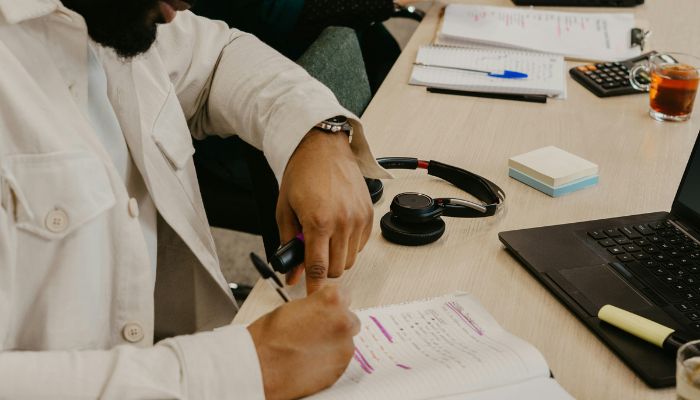
Yes, your phone records can be subpoenaed without your knowledge if certain legal conditions are met. Courts often need to approve such subpoenas, ensuring that legal standards, such as those outlined by the Electronic Communications Privacy Act, are followed. Service providers must comply with these valid subpoenas, balancing legal interests and privacy rights.
Generally, you may not be notified until after your data has been disclosed. This protocol exists to protect the integrity of ongoing investigations while adhering to legal frameworks. To understand more about your rights and the legal process, further details are available.
Understanding Phone Record Subpoenas
Navigating the intricacies of phone record subpoenas is crucial for understanding how personal data can be accessed and used in legal proceedings. A phone record subpoena allows legal authorities to request call logs, text messages, and other data from service providers. This process is not undertaken lightly, as court approval is typically required to issue such subpoenas. Without this approval, the request for personal data may be deemed invalid and inadmissible in court.
One must be aware of the potential consequences of a phone record subpoena, including the impact on privacy and personal security. Service providers often have data retention policies that dictate how long these records are stored, which can affect the scope of the information disclosed. Additionally, third party disclosure rules require that service providers release the requested data to the legal authorities, often without the subscriber’s immediate knowledge. In some cases, you may also need to account for subpoena phone records fees incurred during this process.
Notification requirements vary, but in many cases, the individual whose records are subpoenaed may not be informed until after the data has been disclosed. Understanding these elements is essential for comprehending how phone record subpoenas function and the implications they may carry for individuals and their privacy.
Legal Grounds for Subpoenas

The legitimacy of phone record subpoenas rests on specific legal grounds that ensure the balance between investigative needs and personal privacy rights. Legal requirements dictate that subpoenas must be issued by a court or authorized agency, ensuring that there is a valid reason for accessing phone records. Court approval is often necessary to validate these subpoenas, providing a judicial oversight mechanism to prevent abuse.
Privacy concerns are central to the process, as phone records contain sensitive information. To address these, laws such as the Electronic Communications Privacy Act (ECPA) stipulate stringent conditions under which phone records can be accessed. This includes demonstrating probable cause or relevance to an ongoing investigation, thereby protecting individuals from unwarranted intrusions.
Data protection is another critical aspect, as service providers are legally obligated to safeguard user information. Consequently, they must comply with legal standards before releasing any data. Consent issues also arise, particularly when individuals are unaware of the subpoena.
However, specific circumstances, such as criminal investigations or national security matters, may override the need for explicit consent to ensure the broader public interest is served. These legal frameworks collectively aim to protect individual rights while facilitating lawful investigations.
Subpoenas and Privacy Rights
Balancing the legal grounds for subpoenas with privacy rights is challenging. Privacy concerns arise when personal data, like phone records, is accessed without the individual’s consent. These actions have significant legal implications, as they must comply with federal and state laws protecting personal data. Data security becomes critical, as unauthorized access or mishandling can lead to severe consequences, including identity theft and breaches of confidentiality.
Consent requirements are a critical aspect of this balance. Typically, individuals expect that their personal data will not be disclosed without their explicit permission. However, certain legal frameworks and judicial orders can override these expectations, leading to heightened surveillance risks.
This potential for increased monitoring and data collection underscores the tension between law enforcement objectives and individual privacy rights.
Ultimately, the intersection of subpoenas and privacy rights necessitates a careful examination of both the necessity and proportionality of such legal actions. Ensuring that the legal system respects privacy while fulfilling its duty to uphold justice is essential in maintaining public trust and safeguarding personal freedoms.
Scenario Analysis: Subpoenas Without Knowledge

When subpoenas are issued without the knowledge of the individuals whose phone records are being sought, the implications are profound. Unaware consequences can arise, leaving individuals blindsided by the retrieval and use of their private data in legal proceedings. Legal implications stretch far and wide, potentially impacting ongoing investigations, civil lawsuits, or criminal cases. The lack of notification can further complicate matters, as individuals are deprived of the opportunity to contest the subpoena or prepare potential defenses.
Privacy concerns take center stage in these scenarios, as unauthorized breaches of personal communications violate confidentiality. The debate over balancing lawful access to information and the right to privacy often becomes contentious. Usually, rules require that authorities notify individuals when their records are subpoenaed, except when providing notice could compromise an investigation or endanger others. However, authorities often interpret these exceptions broadly, leading to disputes over whether withholding notification is justified.
Potential defenses include challenging the validity of the subpoena, arguing that it is overly broad or lacks sufficient legal basis. Individuals can also argue that their privacy rights have been infringed upon, seeking judicial intervention to quash the subpoena.
Protecting Your Phone Records
Safeguarding your phone records from unauthorized access and subpoenas without your knowledge requires proactive measures. First, prioritize data security by using strong, unique passwords for all accounts associated with your phone records. Enable two-factor authentication where possible to add an additional layer of protection against unauthorized access.
Privacy concerns are paramount; therefore, be mindful of the information you share online and with third-party applications. Regularly review your privacy settings and take steps to minimize the personal data you share, as this can help mitigate risks.
Understanding the legal implications of phone record subpoenas is essential. Familiarize yourself with the laws in your jurisdiction regarding data privacy and how subpoenas are issued. This knowledge can help you take appropriate preventive measures.
For communication protection, consider using encrypted messaging apps that offer end-to-end encryption. This ensures that only you and the intended recipient can read the messages, making it harder for unauthorized parties to access your communication.
Responding to a Subpoena

Navigating the complexities of responding to a subpoena requires both legal awareness and strategic action. Understanding the subpoena process is key to ensuring that you meet your legal obligations without compromising your rights. Upon receiving a subpoena for phone records, it is crucial to carefully review the document to understand the scope and specific demands.
First, consult with legal counsel to interpret the subpoena’s requirements and align your response with court procedures. This ensures that you comply with legal obligations while safeguarding sensitive information. Your attorney can help you navigate potential objections or motions to quash if the subpoena is overly broad or violates privacy laws.
Data protection should be a priority when responding. Ensure that only the requested information is provided and that any additional personal data remains secure. This step helps mitigate risks associated with unauthorized disclosure.
Meeting notification requirements is another critical aspect. If the subpoena involves third-party data, you may need to inform affected parties about the request, depending on jurisdictional regulations. This transparency helps maintain trust and compliance with legal standards.
Conclusion
Under certain legal grounds, authorities can subpoena phone records without the individual’s knowledge. Legal proceedings often balance privacy rights against the need for such information. It is crucial to understand when this can happen and the legal protections available. Individuals should take proactive steps to protect their phone records and know how to respond if they receive a subpoena. This approach helps maintain a balance between privacy and legal compliance.